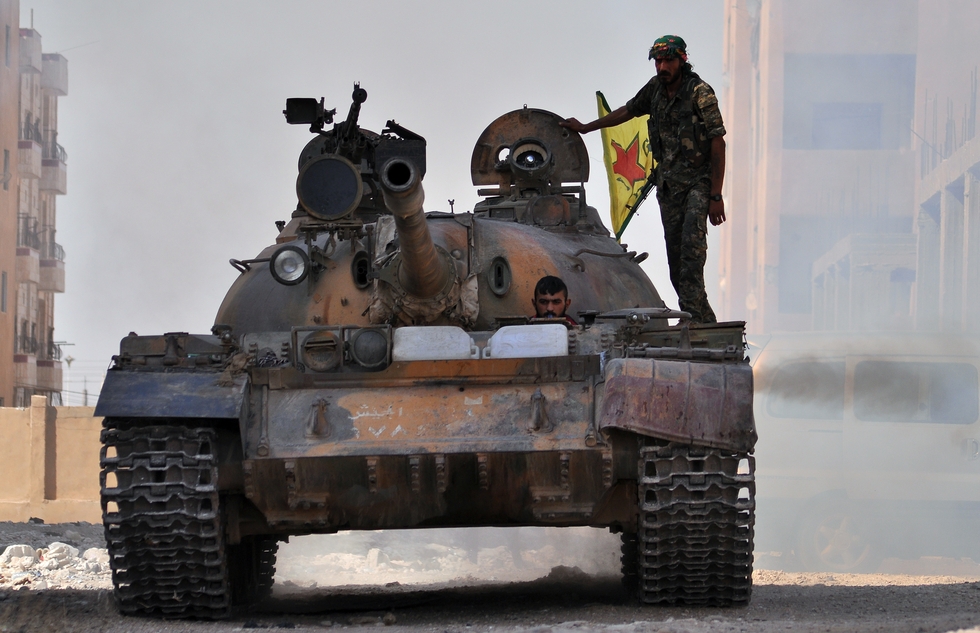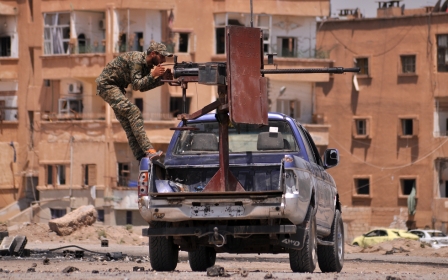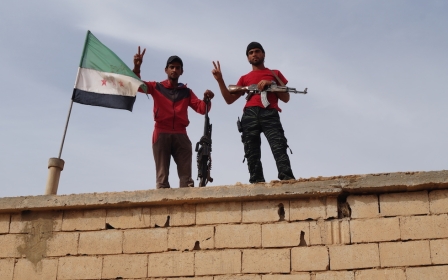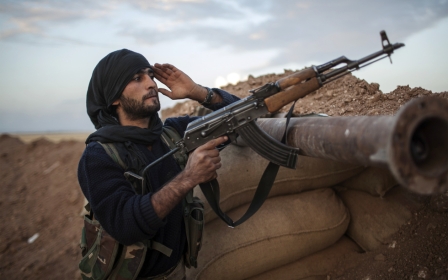Kurdish fighters deny claims of 'ethnic cleansing' in northern Syria

The Kurdish Democratic Union Party (PYD) has denied accusations of house demolitions and preventing displaced Arabs from returning to their homes in Syria, as the US reaffirms its continuing support for the group's operations against the Islamic State (IS) group.
Sipan Hemo, General Commander of the People's Protection Units (YPG), the armed wing of the PYD, said on Thursday that the allegations set out by Amnesty International in a report on Tuesday were "not what is happening on the ground".
"Now, let me be clear; we have liberated some 1500 Arab villages," said Hemo, in an interview with Kurdish journalist Mutlu Civiroglu. "Some of these villages became war zones between us and ISIS. Battles took days in some villages. I am not saying there has been no harm to those villages. But they are not more than four or five villages. We have 1500 Arab villages liberated and people in them live in peace now. If it was true, why are these 1500 villages still standing?"
In the report, Lama Fakih, senior crisis advisor at Amnesty International, claimed that actions by the autonomous administration - referring to local PYD created bodies - in northern Syria had amounted to "war crimes".
“By deliberately demolishing civilian homes, in some cases razing and burning entire villages, displacing their inhabitants with no justifiable military grounds, the autonomous administration is abusing its authority and brazenly flouting international humanitarian law, in attacks that amount to war crimes,” she said.
“In its fight against IS, the autonomous administration appears to be trampling all over the rights of civilians who are caught in the middle. We saw extensive displacement and destruction that did not occur as a result of fighting. This report uncovers clear evidence of a deliberate, co-ordinated campaign of collective punishment of civilians in villages previously captured by IS, or where a small minority were suspected of supporting the group.”
Syrian activists and journalists have claimed that the PYD, who have their origins in the leftist ideology of the Kurdistan Workers Party (PKK) in Turkey, have engaged in acts of "ethnic cleansing" against Arab communities in Syria, claims the group strongly disputes.
"Thirty percent of YPG is made up of Arabs," said Hemo. "If allegations in the report were true did these Arabs with us commit those atrocities too? If such things were true, would they fight alongside us in Jazira and Kobane? We believe such reports want to harm our image."
Supporters of the PYD reacted angrily to the report, with some going so far as to create a petition to have Amnesty remove Lama Fakih from her position, accusing her of being an "Arab nationalist" with an anti-Kurd bias.
The controversy has come as the US reaffirmed its support for the YPG in their fight against IS, despite concerns from the Turkish government about the group's links with the PKK, who are designated as a "terrorist" organisation in Turkey.
“The focus in Syria for the United States and the other 60-plus members of the coalition is counter-ISIL. And we will continue to appropriately support those groups that are proving effective against ISIL inside Syria,” State Department spokesperson John Kirby stated during a press briefing on Wednesday, using an alternative acronym for IS.
“We continue to talk to the Turkish government about their concerns, specifically with respect to the Syrian Kurds,” he added.
Turkey reacted angrily to news that a US weapons drop in northern Syria on Sunday had been intended for the YPG.
Turkish Prime Minister Ahmet Davutoglu accused the US of double standards and not respecting Turkey's national security.
“As the ally countries would not tolerate excuses for arms support to al-Qaeda-affiliated groups, Turkey cannot excuse any armed support to groups linked to the PKK. It certainly cannot allow any tolerance in this matter,” Davutoglu said on Wednesday.
The US-led anti-IS led coalition dropped 50 tons of weapons to the newly created Syrian Arab Coalition on Monday in the Hasakah province, in order not to anger Turkey.
The YPG, along with the SAC - who have formed a coalition called the Democratic Forces of Syria - have reportedly been gearing up for an assault on the IS stronghold of Raqqa.
“We are waiting for the Free Syrian Army (FSA) to start the offensive, since Raqqa is not inside Rojava [Kurdish territory], and we will be with them,” one YPG fighter told Middle East Eye.
“The airstrikes will hit the Islamic state through coordination with the Euphrates Volcano joint operations room,” he added, referring to another Kurdish-Arab coalition in northern Syria.
Middle East Eye propose une couverture et une analyse indépendantes et incomparables du Moyen-Orient, de l’Afrique du Nord et d’autres régions du monde. Pour en savoir plus sur la reprise de ce contenu et les frais qui s’appliquent, veuillez remplir ce formulaire [en anglais]. Pour en savoir plus sur MEE, cliquez ici [en anglais].




